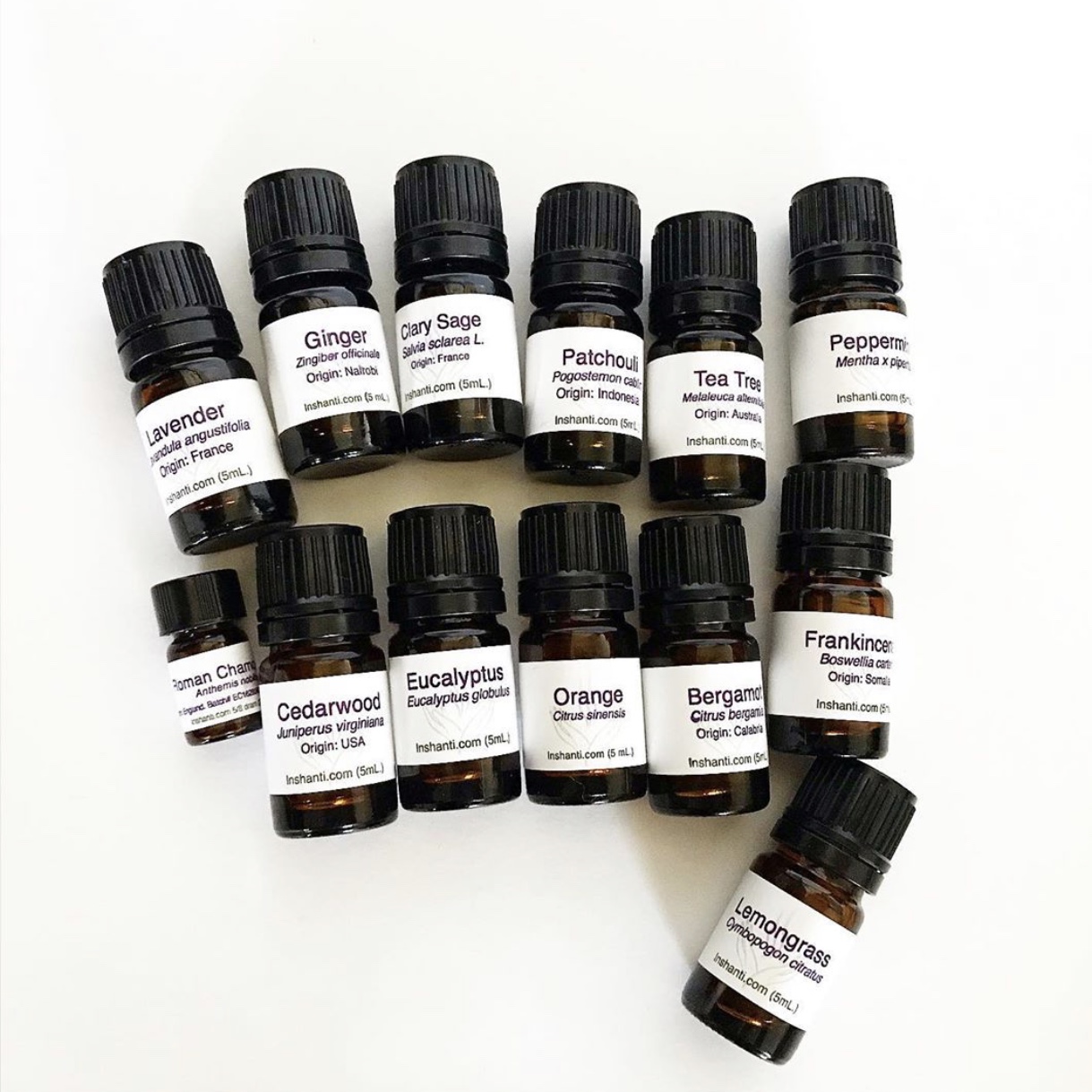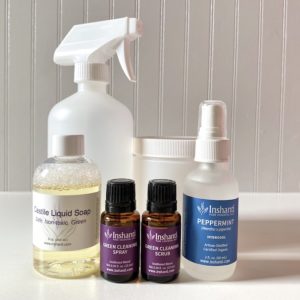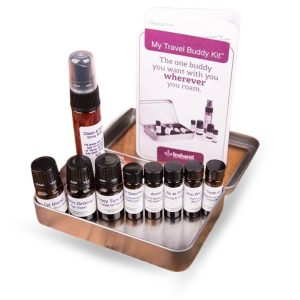SAFETY
Bergamot (Citrus bergamia) – Phototoxic – Avoid direct sunlight or tanning beds for up to 18 hours after applying Bergamot to the skin. Bergamot must not be applied to the skin undiluted. Serious skin burning or damage can occur if Bergamot is applied and the skin is exposed to the sun or a tanning booth. It may be used safely (no phototoxic response) on the skin in a blend at no more than 0.4% (approx. 1-2 drops per 1 oz/30 ml of carrier). If you are using the oil on an area of your skin that has no exposure to the sun or UV light, then there is no safety concern. If oxidized, Bergamot essential oil may cause skin irritation or sensitization due to the high limonene content.
Cedarwood (Juniperus virginiana) – Non-toxic. Many sources tell us to avoid Cedarwood oil during pregnancy. There is no research to support this claim with Cedrus atlantica, Cedrus deodara or Juniperus virginiana. The existing uncertainty may be due in part to the many different types of cedarwood trees.
Roman Chamomile (Anthemis nobilis) – Non-toxic, non-irritating.
Clary Sage (Salvia sclarea) – No known safety issues from the research. A word of caution: Some women have reported significantly increased menstrual flow when used during an already heavy period.
Eucalyptus (Eucalyptus globulus) – Non-toxic, non-irritating. If oxidized, it may cause irritation or sensitization. It may antidote homeopathic remedies. Careful with children under ten years of age (see the reference page on 1,8 cineole rich oils and children). Care must be taken when using with asthmatics. Although research shows it can be helpful with bronchial asthma, it may set off an asthma attack in certain cases so caution is advised. Contraindicated internal use in inflammatory disease of the GI tract and bile ducts, and in severe liver disease.
Frankincense (Boswellia carterii) – Non-toxic, generally non-irritating. Can be skin irritating if oxidized.
Lavender (Lavandula angustifolia) – Non-toxic, non-irritating.
Lemongrass (Cymbopogon citratus) – May irritate skin and mucous membranes, use at 0.7% maximum. May be skin sensitizing (try using oils high in d-limonene or alpha-pinene to help). Use caution for young children. Tisserand suggests the use be restricted to 0.5% maximum on the skin during pregnancy due to citral which could affect fetal development in high topical doses. Oils containing citral should be avoided with antidepressants (specifically Bupropion) that inhibits CYP2B6 enzyme.Tisserand states that this risk is considered “theoretical” based on the research. Check the Potential Drug Interactions reference page for safety issues with oral use.
Orange (Citrus sinensis) – Non-toxic, though it may cause skin irritation. Use in low dilution (1-2%) when applying to the skin, such as in bath or massage oils. Older, oxidized oils increase potential for skin irritation. It’s best to buy citrus oils from organically grown fruit, as citrus trees are heavily sprayed. The citrus oils are cold-pressed, and the pesticides come through the process and are found in the oils. Sweet Orange is not phototoxic.
Patchouli (Pogostemon cablin) – Non-toxic, non-irritating.
Peppermint (Mentha x piperita) – May cause skin or mucous membrane irritation. From experience, we recommend using a maximum of 1-2% dilution for topical use. Robert Tisserand officially recommends a maximum of 5%. May antidote homeopathic remedies. Avoid using with children under five years—can be neurotoxic when applied near the face. Contraindicated in case of cardiac fibrillation and for G6PD deficiency. There is a perception that menthol-rich oils can potentially affect blood clotting, but according to Robert Tisserand, it is not sufficient to be cautioned against anticoagulant medication.
Tea Tree (Melaleuca alternifolia) – Non-toxic, but may cause skin irritation in people with sensitive skin. If oxidized, it may cause sensitization. When oxidized, higher levels of para cymene are present (under 12% is good). When creating products with oils prone to oxidizing, you can add the antioxidant alpha tocopherol (Vitamin E) at .01-.02%. This is an exact figure—a larger amount will not be more effective.








Reviews
Be the first to review this product